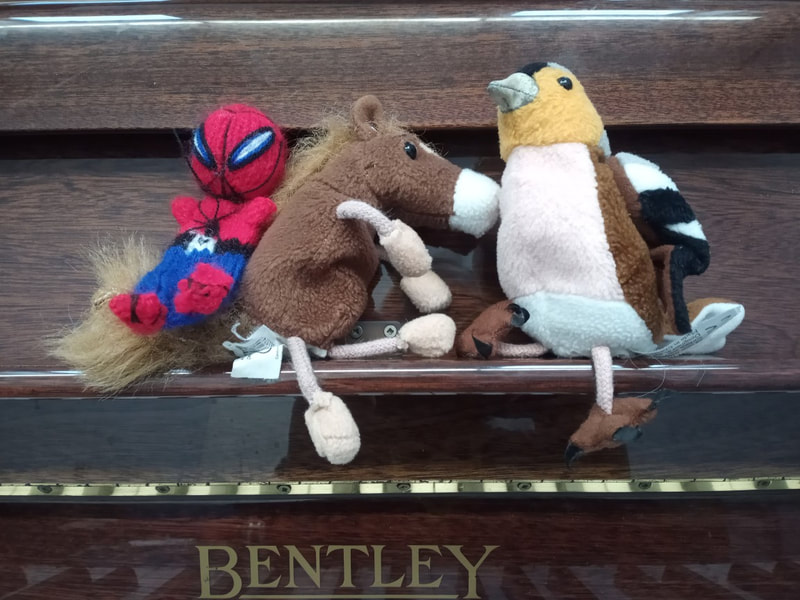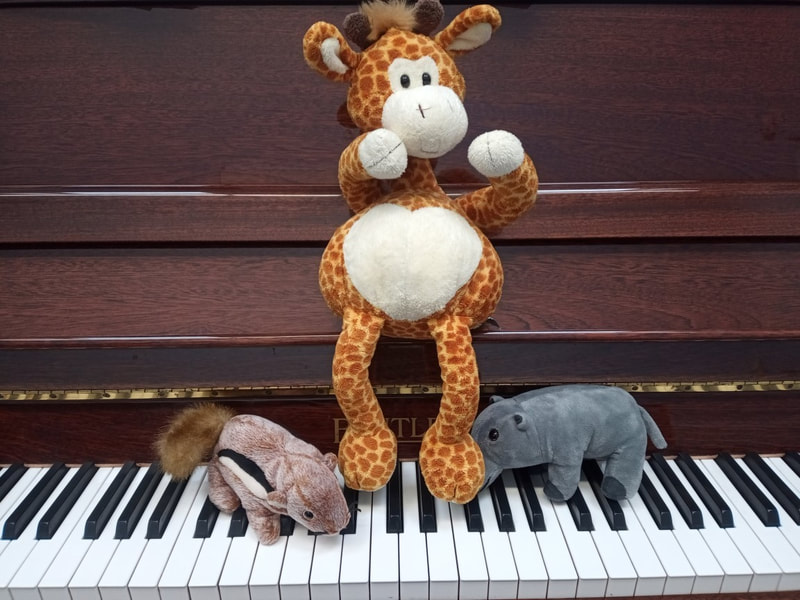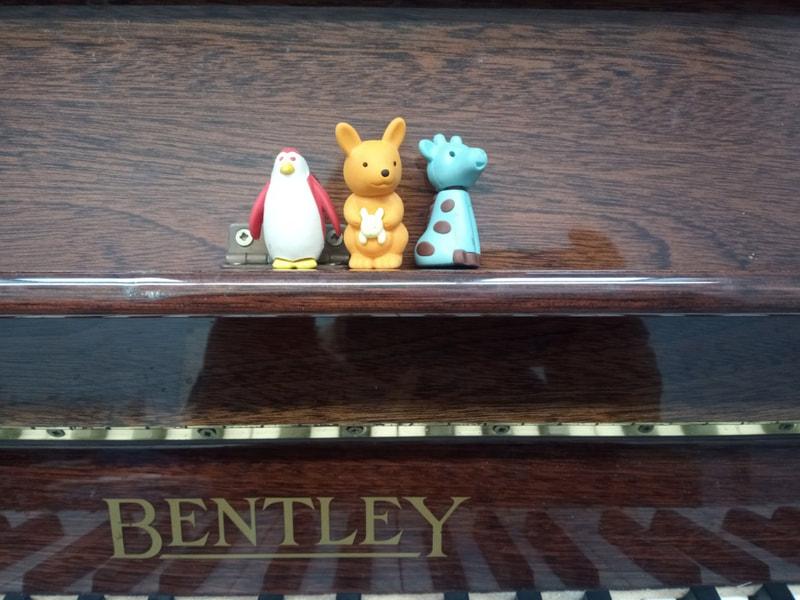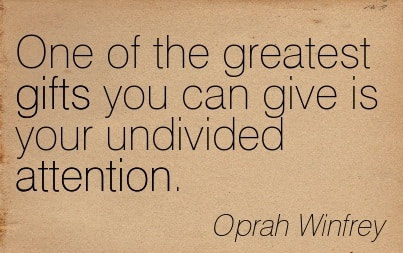|
Getting good at anything takes a lot of repetition. While children love repetition when playing games, listening to stories or other activities, they are not so keen when it comes to mastering a piece on the piano. To get repetition we need to make it fun for them. The primary way I do this in lessons is by using 3 practise buddies. The goal is to get one good repetition for each practise buddy which they can then move / throw. I have a wide selection of toys I use and they enjoy picking which 3 they will use today. I try not to rush them on this as I see that they really like looking through the toys; on the other hand if it starts taking too long I count to three! The toys can be used in various ways. Small toys sit on one side of the music stand and are moved to the other for each correct repetition, the same for the slightly bigger finger puppets I have. Sometimes I give them a treat and we get out the big soft toys! These are great fun to throw and I put a chair a reasonable distance away for them to aim at: they love this! All these different activities are great ways to get repetition while making it fun for the child. I know some teachers use Lego and children build something simple as they go along. When a child is first learning a piece it is unreasonable to expect them to achieve perfect repetitions. So long as they made their best effort and the piece was mostly correct I usually accept it as good enough to move a practise buddy. If there was a major problem I address it before having another go with a buddy. Generally, children improve through the repetitions and the third one is often pretty good. Expectations for the quality of repetitions can increase as the week goes on. With regular daily practise, by their next lesson children should be great at playing their piece. Most Music Moves pieces come with accompaniment videos kept in the online classroom and always linked to in the homework notes. It’s probably best to ensure your child masters the piece without playing along with the video first, but as soon as they can mostly get through it, it’s a good idea play along with the video so you can both check it’s sounding correct. If you can't read music you can also check it’s correct by listening to the ‘listen to’ video for that piece. Once children can play their piece correctly nearly all the time then it’s time to move on to ‘Magic Number 3’. This uses the same buddies but instead of moving a buddy for each correct repetition and it staying there, it is at risk if the other repetitions are not perfect. So if the first go is good, move a buddy, if the second one is also good move a second buddy, but if the third goes wrong all the buddies have to come back. I haven’t used this strategy with most Music Moves students so far as they are all fairly early on in their learning journey but it is very useful to keep up your sleeve if your child is getting a bit bored with their practise because they’re good at it! It’s also very good to encourage serious concentration. We all need to use our judgement here and if this approach is too hard then be sure to revert to the first strategy before frustration or upset arises. We often joke that the buddies are going shopping / to a party and if I want to get more repetitions I suggest we have some more goes to ‘bring our buddies home’ after their trip. Children usually enjoy this and I often get 5 or 6 repetitions this way, stopping when I sense they’ve had enough.
I’m sure you or your child might think of more ways to use the buddies – do share them in the comments or let me know how you get on with this strategy at home.
0 Comments
We continue this series on practising with more really practical tips to help you support your child's practice at home. These are better done in a video format, so please watch the videos below. Do let me know how you get on with implementing the strategies at home. The last couple of posts have discussed the vital role parents play in supporting their child at home by negotiating a practice time and making sure it's stuck to. For the next few posts we turn to practical strategies to help once you're at the piano. Make it a special time In today's hectic world 1:1 time with your child is rare, so why not make practice time a special time when it's just the two of you and you can treasure the time spent together. Put the phone and other distractions away, make sure siblings are occupied elsewhere, shut the dog out and really be present with your child.
your presence is one of the best rewards you can give your child
The power of praise & constructive feedback You already know this, but children crave parents' affirmation but it needs to be:
Say 'I can see how fast you are progressing using that strategy' Say 'I loved the sound you created just there'....and so on. I hope this has given you some ideas for practical ways to support your child. There will be more next time!
How do we solve the age old problem of practising between lessons? I'm sure many of you reading this will either have children who learn an instrument or remember your own instrumental lessons and one of the major problems is practice. A while ago I wrote a blog post about the parent's role in the piano learning journey; a major part of which is helping with piano practice at home. Today's post is about a free online tool called Cadenza developed by Professor Rena Uptis of Queens University in Canada that teachers can use to help motivate students to practice at home. Given that students see their teacher for only 30 minutes a week the progress they make is quite remarkable Given that most students see their teacher for only 30 minutes a week the progress they make is quite remarkable. Compared to the hours children spend each day with their teachers at school, instrumental students, their parents and teachers do a job that is nothing short of amazing!
Cadenza is a free online tool that increases the support available for children outside of lessons. It allows:
perhaps most exciting of all, Cadenza allows the student to upload videos of progress during the week on which the teacher can provide feedback Children will need access to a tablet during their piano practice time. They can work through the activities set by the teacher, monitor their progress during the week, see how much time they have spent working on activities and write notes for themselves or their teacher. The tool can help develop the skill of reflection as children can note what went well and what they need to focus on during the next practice session. The creators of Cadenza report that students 'love' using it and that it's fun. Teachers and students report learning more quickly with Cadenza and experiencing more satisfaction as musicians. And why not, the goal is to make music and the sooner we can all do that the happier we will all be!
From January 2019 Surrey Music School will be using Cadenza with all students. If you have lessons with us please sign up and let us know when you've done so. We can then connect and the fun can begin! |
Caroline BlountDirector of Surrey Music School. Archives
January 2024
Categories
All
|





 RSS Feed
RSS Feed